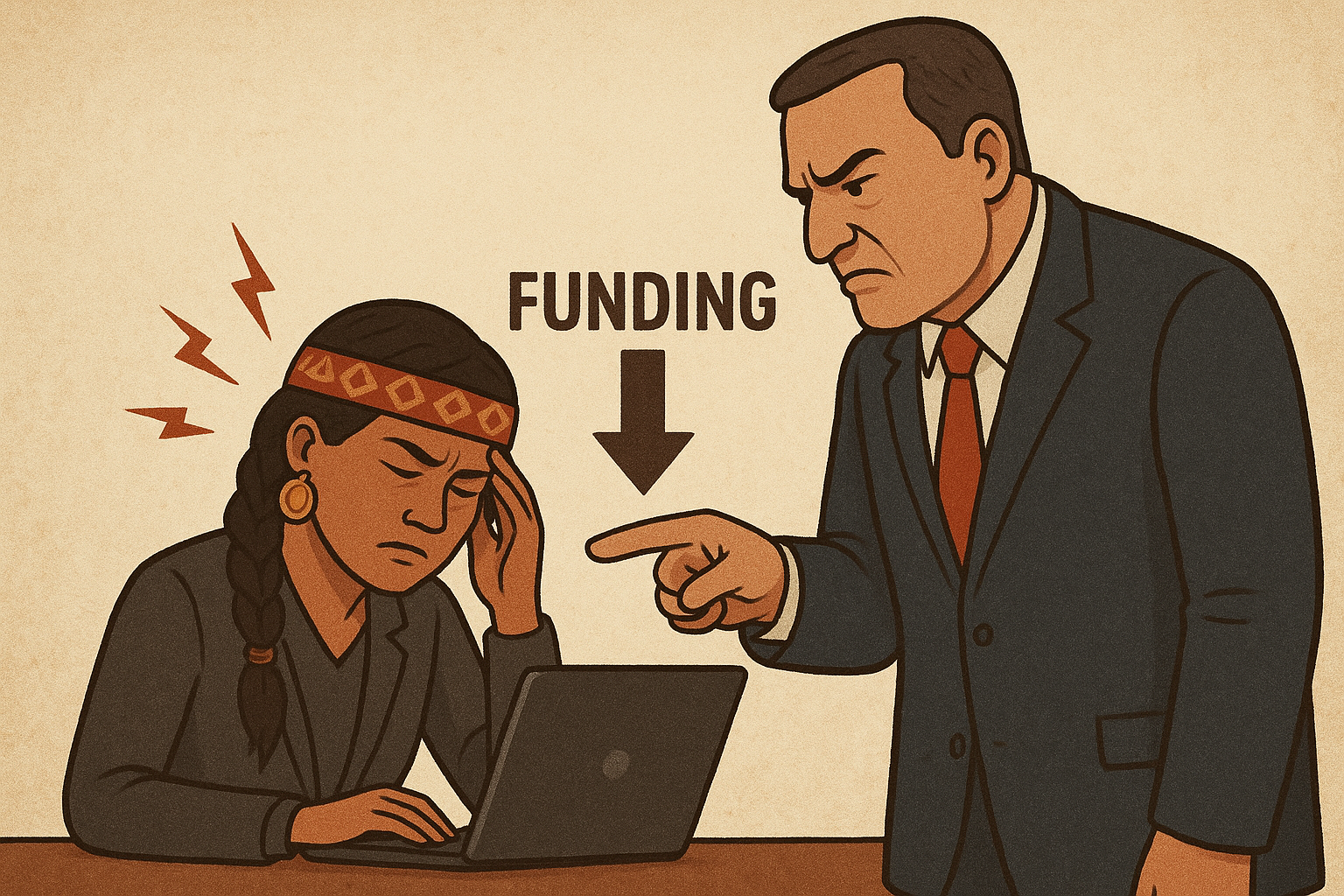Learning about colorados produced water and next steps for community
The discussion focuses on water protection and environmental justice, emphasizing the role of community engagement in influencing policy. It highlights the Colorado Produced Water Consortium's efforts, the importance of collective action, and various avenues for community participation in legislative processes to address produced water management and environmental challenges.
🌾 Honoring Indigenous Peoples’ Day: Environmental Justice and Organic Transition
In recognition of Indigenous Peoples’ Day, Beyond Pesticides highlights the leadership of Indigenous communities in advancing environmental justice and sustainable, organic systems. HAFN’s Food Justice & Sovereignty Program (FJS) is featured as a model for this work—cultivating equitable community spaces and biodiverse gardens that empower underserved communities through hands-on education and connection with the land. The program offers free bilingual educational programming centered on Indigenous agricultural practices, cultural empowerment, and community revitalization. Each season, FJS grows over 1,000 pounds of ancestral foods and medicines, donating 100% of the harvest to food relief organizations across Boulder County.
Together, these efforts represent a living commitment to rematriation, ecological healing, and collective food sovereignty. 🌿
Funder-Inflicted Trauma: How Power Imbalances Harm Nonprofit Leaders and the Sector
In this June 3, 2025 post on Nonprofit AF, Vu explores how funders’ conditional, short-term, and paternalistic practices inflict layered trauma on nonprofit leaders—crushing their capacity to dream, undermining long-term planning, and fostering fear. The piece also highlights the importance of shifting power to communities most affected by injustice to heal and strengthen the sector
FED UP AND BUILDING
A power transition guide for food access workers
This guidebook explores how to shift from a food system controlled by corporations and politicians to one that empowers communities, focusing on justice and long-term wellbeing. It critiques the current charitable food system, which perpetuates food apartheid and consolidates power along social lines. The book highlights ongoing efforts in mutual aid, collective power-building, and the reclamation of land and food traditions, offering strategies for transforming the food system and imagining more just, community-centered futures.
Nonprofit Spotlight: Harvest of All First Nations Indigenous Environmental Justice
Harvest of All First Nations (HAFN) is a Boulder County nonprofit focused on Indigenous-led reparations, rematriation, and reconnecting BIPOC+ communities with the land. Through events like the Corn Festival and programs in cultural education and health, HAFN builds community and promotes environmental justice. Learn more at hafnco.org.
Reclaiming Connection: Andrea Nawage’s Vision for Indigenous Environmental Justice
Andrea Nawage, founder of Harvest of All First Nations (HAFN), leads efforts to reconnect people with the land through Indigenous-led environmental justice. Guided by a philosophy of giving back to nature, she envisions communities with access to land, resources, and healing spaces.
Voices of the Land
Indigenous Women Are Restoring Their Agricultural Heritage in Colorado
Growing up on Cochiti Pueblo in New Mexico, Arielle Quintana often accompanied her dad into the fields where he grew chile peppers, pumpkins, melons, beans, peas and gourds. But the older she got, the less time she spent growing food – and Quintana knows she’s not alone.“We have different songs that talk about women being the holders of seeds and caretakers of plants, and women traditionally participated in the planting and stewardship of food,” Quintana says. “There are so many roles that women had in farming and food systems that have been buried, erased or made invisible under colonialism.
Farm Flavor
Water is Life: Everywhere the Water Flows, We Can Plant a Tree to Grow…
Our own backyard here in Boulder County is the direct connection to our approach to water at Treehouse Learning and as residents of the Front Range Water Shed. At the Western Edge of the county in an area now known as the Indian Peaks Wilderness and the Continental Divide.
Treehouse Learning 2023
A Corn Festival Shares Ancestral Traditions From All First Nations
A team of Harvest of All First Nations, a group focused on Indigenous-led reparations, rematriation & Earth-based Decolonization for the benefit of BIPOC peoples for cultural enrichment and health equity, in collaboration with the Foundation for Leaders Organizing for Water and Sustainability (FLOWS), Dry Lands Agroecology Research, El Centro Amistad, and Food Security Network have organized a whole-day festival to reclaim the ancestral traditions of all first nations people to share the abundance.
KGNU’s Rossana Longo-Better spoke with Andrea Yolloteotl about the importance of corn for native Americans and details about the Corn Festival that will take place on October 1st. Starting at 9 am to sundown at the Yellow Barn farm in Longmont.
KGNU COMMUNITY RADIO
-Like Water, We Re-Member: -
A Conceptual Model of Identity (Re)formation through Cultural Reclamation for Indigenous Peoples of Mexico in the United States
Genealogy 2023
-HAFN Recap-
On September 23rd and 24th, the Harvest of All First Nations Corn Festival was held at the Agricultural Heritage Center in Longmont. The Corn Festival celebrates community, indigeneity, and land and cultural reclamation through a variety of educational workshops, ceremonies, music performances and food harvest shares. The Climate Justice Leadership Alliance volunteered and helped support the event by providing zero waste management.
UNIVERSITY OF COLORADO BOULDER
-Celebrating the Boulder Women Who Tell Our Stories-
Boulder - Colorado News
-People of the Corn-
Corn, or maize, is arguably the most important food crop to have ever been cultivated on the North and South American continents. Today, the U.S. alone grows enough acres of corn to cover the entirety of Germany, and globally, humans grow more corn than any other plant on the planet.
THE MAD AGRICULTURE JOURNAL













